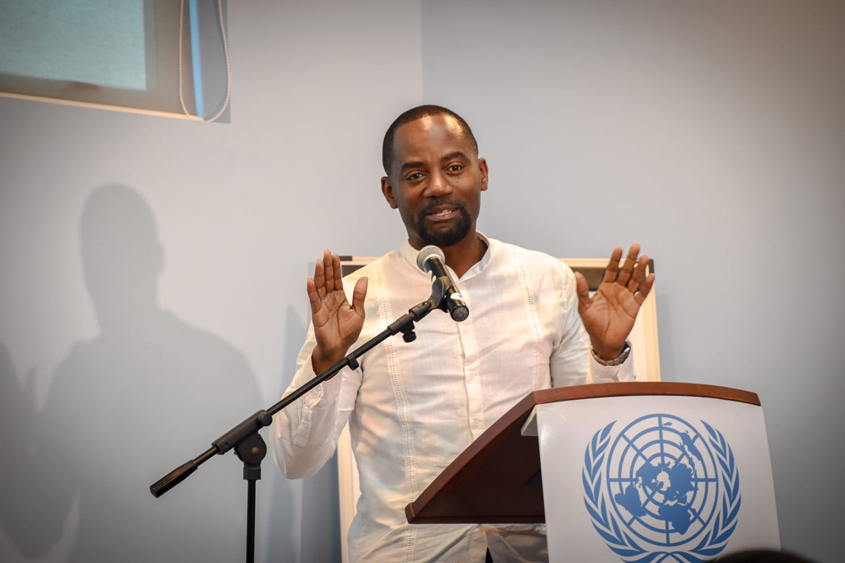

Government is moving to update data relating to the poverty line, which has not been done since 2016.
Minister of People Empowerment and Elder Affairs Kirk Humphrey said recently the Country Assessment of Living Conditions (CALC), otherwise known as a poverty line study, had not been updated in nine years.
“Obviously, you cannot really be talking about poverty in 2025 and using 2016 statistics and data. It doesn’t make sense, so whenever we refer to the poverty line, now, we just do it for historical purposes in my opinion, because there’s no relationship between that poverty line and now when we’re talking about a post-COVID world, we’re talking about just a changing environment,” he said.
Humphrey said Government is about to complete the CALC update which will provide a more accurate representation of the financially vulnerable conditions of Barbadians living today.
“We are about to complete the country assessment of living conditions. That will give us a poverty line, and that poverty line would allow us to make decisions about how much should we raise the minimum wage. How much should we raise the welfare rates. What other systems do we have to put in place? How many of those persons are women? What is the age group? Where do these people live?” he added.
The Minister’s remarks came during the Youth Data Literacy Workshop Agenda at the United Nations House in Marine Gardens, Christ Church.
The workshop was for youth advocates involved in various initiatives to share and learn how they can access data insights and use that information to help shape policies.
The all-day event tackled conversations such as fostering a data ecosystem which promotes data-driven advocacy for youth in the Caribbean.
Humphrey listed the CALC assessment as an example of the many ways this data literacy can help shape policies in a ministry.
“At the end of the day, data is what you need to be able to make effective decisions to govern a country and to improve the lives of people. The point was that one of the essential elements of research methods is the idea of understanding data.
“How do you get information? How do you go about doing research? And to make sure that that research is valid, so validity is important, and reliability is important,” he said.
The Minister emphasised the role of youth advocates as active participants in the policy-making process. He said that where traditional mechanisms to build and deliver policy have failed, Government acknowledged the need for extensive collaborations in that matter.
“Supporting data literacy, therefore, among young people is especially critical, particularly in an age where information can be misleading, and I’m sure we have several examples we can draw on. It is also important for young people to be aware of reputable repositories containing robust data sets that can be used to support their advocacy efforts,” he said.
“I said to some young people recently, it is good to be passionate. That is the world needs passion. But if you’re going to move the agenda forward, we also have to be strategic. And to be strategic, we really need to have effective data. And I want people to dive in to the idea of data because data changes the world.”
Humphrey said validity is important: “You could get reliable data, reliable findings that are not necessarily valid. You want to ensure validity because validity means that it’s accurate. So you want to make sure that you have access to both of these sources, valid, reliable information.
“That’s important. And then use that to be able to make decisions. And then when we’re shaping policy, we want to make sure that that’s the kind of information that we have as we go forward. At the end of the day, data is what you need to be able to make effective decisions to govern a country and to improve the lives of people,” he said.





